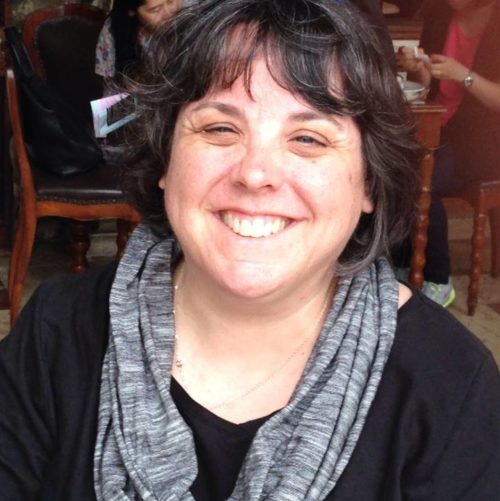
Sarina Gruver Moore teaches English at Calvin College. Her wedding china is Wedgewood, “India” pattern (because what else would a Victorianist have?).
God is our refuge and strength,
a very present help in trouble.
Therefore we will not fear, though the earth should change,
though the mountains shake in the heart of the sea;
though its waters roar and foam,
though the mountains tremble with its tumult.
There is a river whose streams make glad the city of God,
the holy habitation of the Most High.
–Psalm 46*
My house felt holy yesterday.
All day long we had little friends visiting us for a play date while their parents worked to paint their new house and pack up their old house. My boys are kind of at the end of their summertime good humor (or maybe I am), and believe it or not, adding two more kids to the mix gave everybody a boost of cheerfulness.
Five happy children make for a surprisingly quiet house, so all day long I wore an apron and cooked and puttered in the kitchen and listened to podcasts on food. At dinnertime, our adult houseguests returned from the conference they are attending this week at Calvin. Ron is one of my oldest friends—we’ve known each other since we were ten—and Chris is a new friend I met just a day ago but who already feels like a part of the extended family.
While Ron and I talked in the kitchen, Chris sat down at the piano. “Oh!” I apologized. “It needs to be tuned, and it’s missing two black keys where the kids have broken them off.”
Reader, that piano has never sounded better.
My husband returned home from work and opened a bottle of wine. Our babysitter, Julia, who is living with us for the summer, came downstairs to join us. We set the table, lit the candles, opened another bottle of wine, held hands and sang the prayer song our boys have been singing all of their lives.
God, our Father, we thank you for our many blessings. Amen.
Eight people singing in four-part harmony.
If this all sounds very hobbitish, it was. If it sounds impossibly serene and perfect, it wasn’t. Rest assured that at one point the youngest son bit his elder brother hard enough that tears and recriminations and apologies and half-hearted forgiveness followed.
After dinner I brewed decaf (because old) and got out the coffee cups from our wedding china (because l’chaim!).
These past many weeks have been full of such sad, sad news, haven’t they? That evening of dinner and conversation and music and candles and wine felt like a ritual of light to drive back the darkness.
In the 1950s the British novelist Rosemary Sutcliff wrote a trilogy of young adult historical novels about Roman Britain. The final novel in the trilogy is set in the 5th century during the years following Rome’s withdrawal from the English shores. It is the end of an empire—the end of civilization, as people then understood it. The Saxons lurked at the dark edges, ready to pounce. There is a dark tone to the novel, but it is mitigated by hope:
“It may be that the night will close over us in the end, but I believe that morning will come again. Morning always grows out of the darkness, though maybe not for the people who saw the sun go down. We are the Lantern Bearers, my friend; for us to keep something burning, to carry what light we can forward into the darkness and the wind.”
So yes. The earth changes and the mountains shake, but I’m going to bear my lantern. Use the wedding china and play the broken piano. Apologize for biting my brother. Eat food with friends, and always, always light the candles.
*Thanks to Chaplain Mary Hulst of Calvin College for drawing my attention to these verses yesterday.

